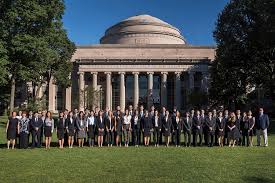Introduction
The Massachusetts Institute of Technology (MIT) is a world-renowned institution that has been at the forefront of technological advancement and innovation since its founding in 1861. Located in Cambridge, Massachusetts, MIT is recognized globally for its rigorous academic programs, cutting-edge research, and influential alumni network. This article provides an in-depth look at MIT’s history, academic offerings, research initiatives, campus life, and its impact on the world.

History and Mission
Founding and Early Years
MIT was founded by William Barton Rogers, a distinguished natural scientist, who envisioned a new kind of educational institution that would integrate teaching, research, and practical application. The institution was chartered in 1861, and classes began in 1865, delayed by the Civil War. From its inception, MIT emphasized hands-on learning and practical experience, a philosophy that continues to guide its educational approach today.
Mission
History of MIT
The Massachusetts Institute of Technology (MIT) was founded on April 10, 1861, by William Barton Rogers, a distinguished natural scientist. Rogers was driven by the idea of creating a new type of educational institution that would marry theoretical knowledge with practical application. This vision materialized during a period of intense industrialization in the United States, when there was a growing demand for technical and scientific expertise.
Early Years:
- Charter and Foundation: The Massachusetts legislature approved the MIT charter two days before the outbreak of the American Civil War. This charter established MIT as an independent educational institution focused on advancing knowledge and educating students in science, technology, and other areas of scholarship that could best serve the nation and the world.
- First Classes: The first classes were held in 1865, in rented space in Boston’s Back Bay. Rogers served as the first president of MIT and established the principle of combining teaching and research with practical engagement.
Expansion and Relocation:
- 1916: MIT relocated from its original location in Boston to a new campus in Cambridge, Massachusetts. The move was facilitated by an anonymous donation from an industrialist (later revealed to be George Eastman, founder of Eastman Kodak Company), which allowed for the expansion and development of state-of-the-art facilities.
World War II and Beyond:
- During World War II, MIT played a crucial role in the war effort, particularly in the development of radar technology through the Radiation Laboratory. This period marked the beginning of MIT’s deep involvement in national defense research.
- Post-War Growth: The post-war era saw significant growth in MIT’s research activities and its contributions to fields such as computer science, electronics, and aerospace engineering. The establishment of various interdisciplinary research labs and centers further solidified MIT’s position as a leader in scientific and technological innovation.
Modern Era:
- Technological and Scientific Advancements: MIT has been at the forefront of numerous technological and scientific advancements, including the development of the World Wide Web standards, innovations in artificial intelligence, and breakthroughs in biotechnology and renewable energy.
- Global Influence: Today, MIT is recognized globally for its educational programs, cutting-edge research, and impactful contributions to addressing some of the world’s most pressing challenges.
Mission of MIT
MIT’s mission is succinctly captured in its motto, “Mens et Manus,” which translates to “Mind and Hand.” This reflects the institute’s commitment to the integration of rigorous academic study with practical application. The mission statement of MIT articulates several core objectives:
- Advancement of Knowledge:
- MIT is dedicated to generating, disseminating, and preserving knowledge. The institute fosters a culture of learning where education, research, and real-world application are tightly interwoven.
- Educational Excellence:
- The institute aims to provide an exceptional education to its students, preparing them to become leaders and innovators in their respective fields. This is achieved through a blend of classroom learning, hands-on research, and interdisciplinary collaboration.
- Innovation and Impact:
- MIT places a strong emphasis on innovation and the application of knowledge to solve complex problems. The institute encourages students and faculty to engage in entrepreneurial activities and to develop technologies and solutions that can have a transformative impact on society.
- Service to the Nation and the World:
- The mission of MIT extends beyond academic and research excellence to include service to the nation and the global community. This involves addressing societal challenges, contributing to policy development, and promoting sustainable and equitable growth.
- Interdisciplinary Collaboration:
- Recognizing the interconnectedness of modern challenges, MIT promotes interdisciplinary research and collaboration. This approach facilitates breakthroughs that can arise from the convergence of different fields of study.
The Massachusetts Institute of Technology has evolved from a modest technical school into a world-renowned institution of higher education and research. Its commitment to blending theoretical knowledge with practical application, fostering innovation, and addressing global challenges continues to drive its mission. Through its educational programs, research initiatives, and entrepreneurial spirit, MIT remains at the forefront of scientific and technological advancements, making a profound impact on society.
For more detailed information on MIT’s history and mission, you can visit the official MIT website
MIT’s mission is to advance knowledge and educate students in science, technology, and other areas of scholarship that will best serve the nation and the world in the 21st century. The institute aims to produce leaders who can address complex global challenges through innovation and interdisciplinary collaboration.

Academic Excellence
Schools and Departments
MIT is organized into five schools:
- School of Architecture and Planning
- School of Engineering
- School of Humanities, Arts, and Social Sciences
- Sloan School of Management
- School of Science
Each school comprises multiple departments, offering undergraduate, graduate, and doctoral programs in a wide array of disciplines. The School of Engineering is particularly prominent, consistently ranked as one of the best in the world.
Notable Programs and Courses
MIT is known for its strong programs in fields such as Computer Science, Mechanical Engineering, Electrical Engineering, and Economics. The institute offers a range of interdisciplinary programs that allow students to tailor their education to their interests and career goals. Some of the notable courses include:
- 6.001 Structure and Interpretation of Computer Programs
- 8.01 Physics I: Classical Mechanics
- 14.01 Principles of Microeconomics
Admissions and Selectivity
MIT is highly selective, with an acceptance rate typically below 10%. The admissions process is holistic, considering academic excellence, extracurricular involvement, personal essays, and interviews. MIT seeks students who are passionate about learning, innovative in their thinking, and committed to making a positive impact.

Research and Innovation
Research Facilities and Institutes
MIT is home to numerous research centers and institutes that foster innovation across various fields. Notable among these are:
- The Media Lab: Known for its avant-garde research in media, technology, and design.
- The Koch Institute for Integrative Cancer Research: Focuses on innovative cancer research.
- The Computer Science and Artificial Intelligence Laboratory (CSAIL): The largest research lab at MIT, driving advancements in AI and computer science.
Major Research Contributions
MIT researchers have made significant contributions to technology, science, and engineering. Some landmark achievements include:
- Development of the World Wide Web: Tim Berners-Lee, an MIT professor, invented the World Wide Web.
- Artificial Intelligence: MIT has been a pioneer in AI research, contributing to developments in machine learning, robotics, and natural language processing.
- Biomedical Innovations: Innovations in drug delivery systems and medical devices.
Entrepreneurship and Startups
MIT has a strong entrepreneurial culture, supported by resources like the Martin Trust Center for MIT Entrepreneurship and the MIT $100K Entrepreneurship Competition. MIT alumni have founded thousands of companies, including major tech firms like Intel, Qualcomm, and Dropbox. These startups collectively generate significant economic impact globally.
Campus Life
Student Life and Activities
MIT offers a vibrant campus life with numerous student organizations, clubs, and extracurricular activities. The institute has over 500 student groups, including the MIT Solar Electric Vehicle Team, the Debate Team, and the MIT Media Lab.
Residential Life
MIT provides a variety of housing options for students, with most undergraduates living on campus. The residence halls foster a sense of community and offer programs that support academic and personal growth.
Athletics and Recreation
MIT has a robust athletics program, with 33 varsity sports teams competing in the NCAA Division III. The Zesiger Sports and Fitness Center provides state-of-the-art facilities for fitness and recreation.
Cultural and Artistic Activities
MIT encourages cultural and artistic expression through initiatives like the MIT Museum, the List Visual Arts Center, and numerous performance groups. The institute’s emphasis on arts and humanities complements its scientific and technical programs.
Global Impact
Alumni Achievements
MIT alumni have made remarkable contributions across various fields. Some notable alumni include:
- Kofi Annan: Former Secretary-General of the United Nations.
- Richard Feynman: Nobel Prize-winning physicist.
- Amar Bose: Founder of Bose Corporation.
Global Collaborations
MIT collaborates with institutions and organizations worldwide to address global challenges. Programs like the MIT International Science and Technology Initiatives (MISTI) provide students with international research and internship opportunities, fostering global engagement and understanding.
Social Impact and Sustainability
MIT is committed to addressing pressing global issues such as climate change, healthcare, and social equity. The institute’s Plan for Action on Climate Change outlines strategies to reduce carbon emissions and promote sustainability through research, education, and campus operations.
Introduction
The Massachusetts Institute of Technology (MIT) is not only a leader in scientific and technological research but also a significant contributor to social impact and sustainability. Through its diverse programs, initiatives, and policies, MIT strives to address global challenges, promote sustainable development, and foster social innovation. This article explores MIT’s efforts in these areas, highlighting key initiatives and their impacts.
Social Impact Initiatives
MIT’s commitment to social impact is evident in its wide range of programs designed to address societal challenges, enhance education, and support underserved communities.
1. MIT Solve
MIT Solve is an initiative that identifies and supports social entrepreneurs and innovators who are tackling the world’s most pressing problems. Solve hosts open innovation challenges to find the best solutions in areas such as health, sustainability, and economic prosperity. It then connects these innovators with MIT’s resources, funding, and networks to scale their impact.
Key Focus Areas:
- Sustainability: Solutions that address climate change, sustainable cities, and energy.
- Health: Innovations that improve health outcomes and access to care.
- Economic Prosperity: Initiatives that enhance economic opportunities and reduce inequality.
- Learning: Projects that improve educational outcomes and access to quality education.
2. MIT D-Lab
MIT D-Lab focuses on developing and disseminating technologies that improve the lives of people living in poverty. It fosters collaborative design and co-creation with communities in developing countries, ensuring that solutions are context-appropriate and sustainable.
Programs and Projects:
- Creative Capacity Building: Empowering communities to identify challenges and design solutions.
- Humanitarian Innovation: Developing technologies for disaster response and humanitarian aid.
- Inclusive Economies: Creating opportunities for economic inclusion and empowerment.
3. Public Service Center
The MIT Public Service Center supports students in their efforts to apply their skills and knowledge to serve the public good. It provides grants, fellowships, and mentorship for service projects, both locally and globally.
Impactful Projects:
- Global Teaching Labs: Students travel abroad to teach STEM subjects in high schools.
- PKG Fellowships: Supporting students in public service internships and research projects.
Sustainability Initiatives
MIT has a strong commitment to sustainability, integrating it into research, education, and campus operations. The institute’s efforts are guided by the MIT Sustainability Initiative and the Office of Sustainability.
1. MIT Sustainability Initiative
This initiative aims to create a sustainable future by addressing complex environmental challenges through research, education, and engagement. It leverages MIT’s strengths in science, engineering, and policy to drive impactful solutions.
Key Areas of Focus:
- Climate Action: Research and initiatives to mitigate climate change and adapt to its impacts.
- Sustainable Urbanization: Developing sustainable cities and communities.
- Circular Economy: Promoting resource efficiency and waste reduction.
2. MIT Office of Sustainability
The Office of Sustainability (MITOS) works to integrate sustainability into all aspects of campus operations. It collaborates with students, faculty, and staff to develop and implement strategies that reduce the environmental footprint of the institute.
Notable Programs:
- MIT Climate Action Plan: A comprehensive strategy to reduce greenhouse gas emissions and achieve carbon neutrality by 2026.
- Sustainable Buildings: Implementing green building standards and retrofitting existing structures for energy efficiency.
- Zero Waste Initiative: Reducing waste through recycling, composting, and minimizing single-use plastics.
3. Climate CoLab
The MIT Climate CoLab is an online platform that crowdsources innovative climate solutions from people around the world. It encourages collaboration and idea-sharing to tackle climate change challenges.
Impact and Reach:
- Global Participation: Engaging thousands of individuals and teams from over 100 countries.
- Innovative Solutions: Implementing projects in renewable energy, carbon capture, and sustainable agriculture.
Research and Innovation in Sustainability
MIT’s research in sustainability spans multiple disciplines and addresses critical global issues. The institute’s interdisciplinary approach ensures that sustainability is integrated into scientific, technological, and policy research.
1. MIT Energy Initiative (MITEI)
MITEI focuses on advancing energy technologies and policy solutions to transition to a low-carbon future. It brings together researchers, industry, and government to tackle energy challenges.
Research Areas:
- Renewable Energy: Developing technologies for solar, wind, and other renewable energy sources.
- Energy Storage: Innovating in battery technologies and grid storage solutions.
- Policy and Economics: Analyzing energy policies and their economic impacts.
2. Environmental Solutions Initiative (ESI)
ESI aims to advance environmental solutions through research, education, and outreach. It focuses on understanding and addressing environmental risks and promoting sustainability.
Programs and Projects:
- Food and Water Security: Research on sustainable agriculture and water management.
- Biodiversity and Ecosystems: Studying the impact of human activities on ecosystems and developing conservation strategies.
- Climate Adaptation: Designing systems and technologies to adapt to climate change impacts.
Education and Outreach
MIT integrates sustainability and social impact into its educational programs, ensuring that students are equipped with the knowledge and skills to address global challenges.
1. Sustainability Certificate
MIT offers a Graduate Certificate in Sustainability, which provides students with an interdisciplinary understanding of sustainability challenges and solutions. The program includes coursework in environmental science, engineering, policy, and management.
2. Outreach and Engagement
MIT engages with the broader community through outreach programs that promote sustainability education and awareness. These initiatives include public lectures, workshops, and partnerships with local organizations.
Examples of Outreach Programs:
- Climate Science in the Classroom: Bringing climate education to K-12 schools.
- Community Solar Projects: Partnering with local communities to develop solar energy projects.
The Massachusetts Institute of Technology is at the forefront of addressing some of the most pressing social and environmental challenges of our time. Through its innovative research, impactful programs, and commitment to sustainability, MIT is making significant contributions to creating a more equitable and sustainable world. The institute’s integrated approach to education, research, and community engagement ensures that it remains a leader in driving positive social and environmental change.
For more detailed information on MIT’s social impact and sustainability .

Conclusion
The Massachusetts Institute of Technology stands as a beacon of excellence in education, research, and innovation. Its commitment to advancing knowledge, fostering innovation, and addressing global challenges ensures that it remains at the forefront of technological and scientific progress. With a rich history, a vibrant campus life, and a profound global impact, MIT continues to shape the future, inspiring generations of leaders and innovators.
References
- QS World University Rankings. (2024). Retrieved from QS Top Universities.
- Times Higher Education World University Rankings. (2024). Retrieved from Times Higher Education.
- MIT News. (2024). QS ranks MIT the world’s No. 1 university for 2023-24. Retrieved from MIT News.
- MIT Facts 2024. Retrieved from MIT.
- MIT Research. Retrieved from MIT Research.


